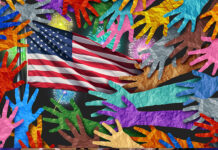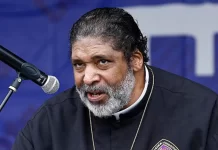As we bear witness to the anguish of Ukrainians, their families torn apart by evil incarnate, I wonder whether in decades to come some will deny this atrocity ever happened. Just as some of our contemporaries have denied the Holocaust and the Armenian genocide.
And also insist that the history of those of the African diaspora, ripped from their homelands and families, shackled, enslaved and brutalized and used to build the very foundation of this great nation – from its fields to the house of its presidents – must be silenced.
But like others who have endured injustice, African-American families persist in their striving, many drawing strength from annual gatherings of elders and younger generations. Today’s tradition of the African-American family reunion dates back to emancipation, when families torn apart by slavery desperately tried to reconnect with loved ones they’d lost.
As documented by Last Seen: Finding Family After Slavery, a project of Villanova University and Mother Bethel AME Church in Philadelphia, African Americans placed thousands of ads in newspapers in their quest to reunite with beloved children, parents, siblings and spouses.
Black family reunions are now a cherished tradition. On hiatus during the pandemic, they’re making a cautious return this year.

















